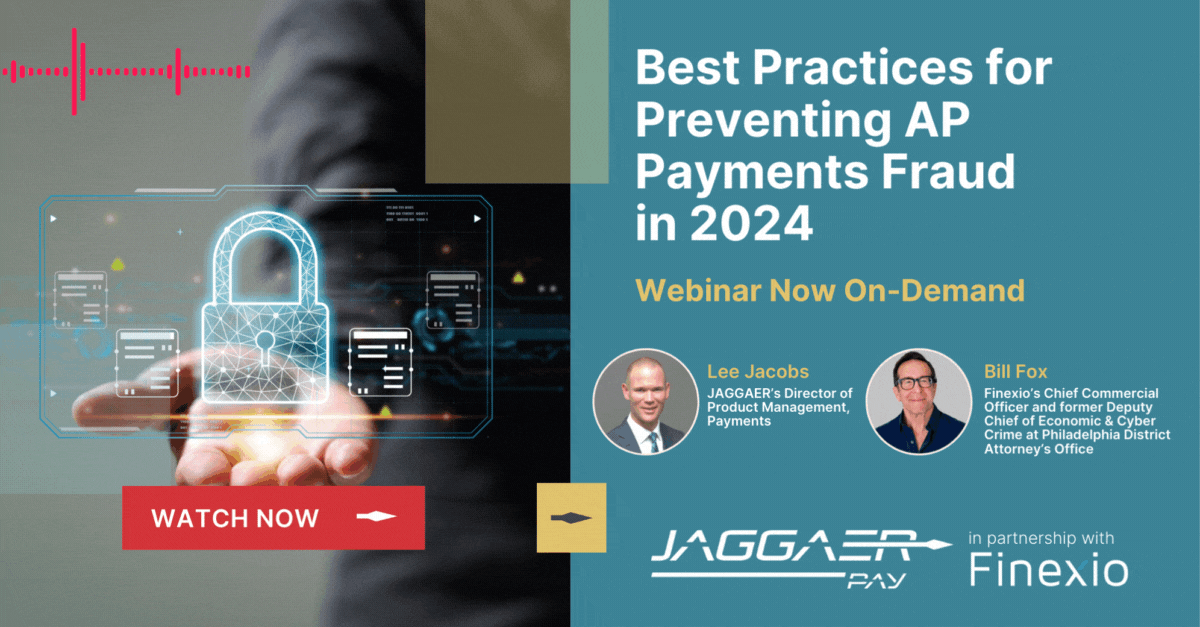As technology continues to advance, so do the tactics used by cybercriminals to commit fraud. Accounts Payable (AP) departments are particularly vulnerable to fraud, as they handle a significant amount of financial transactions. And before dismissing the possibility for your organization, consider the following:
- Ransomware will attack a business, consumer, or device every 2 seconds by 2031, according to estimates from the research firm Cybersecurity Ventures. These ransomware attacks will cause an estimated $265 billion in damage annually.
- Sixty-five percent of companies surveyed in the 2023 AFP Payments Fraud and Control Survey Report indicated that their organizations were victims of either attempted or actual fraud activity in 2022.
Looking ahead to 2024, it is crucial for businesses to take proactive measures to protect themselves against AP fraud. This blog post will provide valuable insights into AP fraud prevention, offering five tips to safeguard your company’s finances.
1. Security by Design – Establish Secure Processes & Systems
Investing in secure processes and systems is essential for preventing AP fraud. This includes installing and regularly updating antivirus and anti-malware software on all devices, using firewalls, and monitoring them closely. Additionally, limiting employee access to business-critical data can minimize the potential for unauthorized access. When selecting partners for business-critical processes like accounts payable, choose organizations that prioritize cybersecurity and understand the vulnerabilities that cybercriminals seek to exploit.
2. Implement Data Encryption
Data encryption plays a vital role in protecting sensitive information from falling into the wrong hands. Encryption should be employed both in transit and at rest. Data in transit refers to the transfer of data between endpoints, such as B2B payments from clients to suppliers. Data at rest refers to data stored in databases, including supplier bank account details and sensitive identification information. By encrypting data, businesses can mitigate the risks associated with non-compliance penalties and maintain trust with customers and business partners.
3. Strengthen Employee Authentication Practices
In 2024, the threat of AP fraud continues to loom large, making it imperative for businesses to prioritize fraud prevention measures. By implementing robust employee authentication practices, data encryption, secure processes and systems, regular data deletion and backup, and comprehensive employee training, businesses can significantly reduce their risk of falling victim to AP fraud. It is essential to stay informed about the latest fraud prevention techniques and adapt them to suit the evolving landscape of cybercrime. By taking proactive steps to protect your company’s finances, you can ensure the stability and success of your business in the face of increasing cyber threats.
4. Regularly Delete Old Data and Backup Current Data
Cybercriminals do not solely target active data; they also exploit data at rest and in storage. To minimize the risk of AP fraud, businesses should regularly delete old and unused data stored in networks and the cloud. This includes sensitive information about employees and customers who are no longer associated with the company. By removing this data, businesses can prevent liability due to security breaches. Additionally, establishing a robust backup system ensures that in the event of a cyberattack or other disasters, critical data can be restored, minimizing the impact on the business.
5. Provide Comprehensive Employee Training
Creating a culture of cybersecurity awareness is crucial for preventing AP fraud. Many business leaders assume that employees understand cybersecurity best practices, but this is often not the case. Implementing comprehensive employee training programs can help educate employees about the risks of AP fraud and how to identify and prevent it. This includes proper password management practices, recognizing and avoiding spear-phishing attempts, and being vigilant when downloading attachments or clicking on unknown links. By empowering employees with the knowledge and tools to protect against AP fraud, businesses can significantly reduce their vulnerability.
In conclusion, protecting your company from AP fraud requires a proactive approach to cybersecurity. By investing in security measures, implementing data encryption, enhancing user authentication, deleting old data, backing up current data, and training your employees, you can significantly reduce the risk of cyber fraud.
Remember, cybercriminals are constantly evolving their tactics, so it is crucial to stay informed and adapt your security practices accordingly. By prioritizing cybersecurity, you can safeguard your organization’s financial well-being and maintain the trust of your customers and business partners.
Looking for a simple and secure B2B payments solution? JAGGAER Pay offers advanced fraud prevention measures to keep your payment data safe while streamlining your AP processes. Watch our AP Payments Fraud webinar or book a meeting with your JAGGAER representative to learn more about your secure and efficient payment options. Stay safe and protect your company from cyber fraud in 2024 and beyond.





